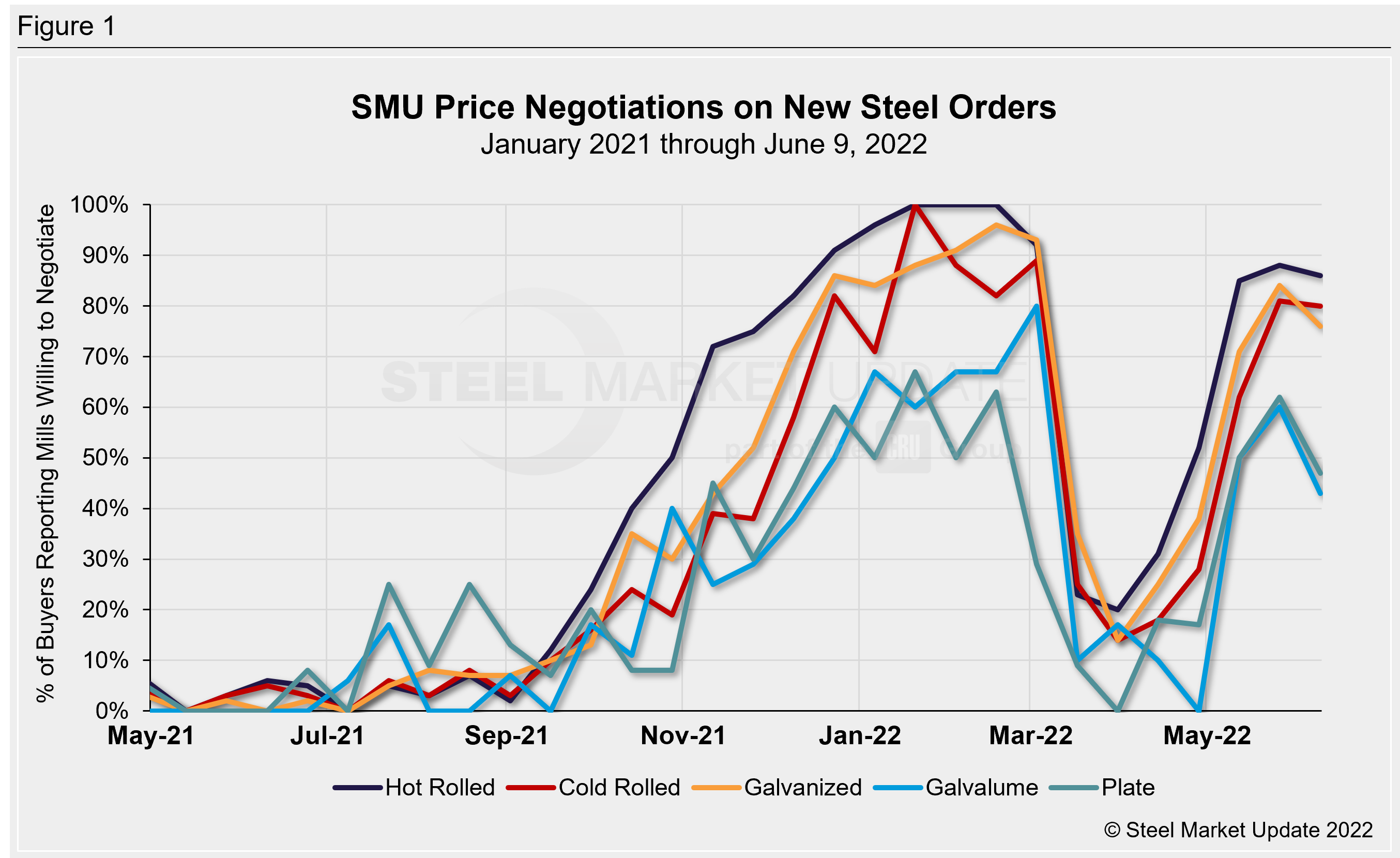Market Data

June 9, 2022
Mill Willingness To Negotiate on Prices Remains High
Written by Brett Linton
Three out of four buyers report that mills are willing to talk price to secure an order, according to executives polled in our latest steel market survey. Mills’ willingness to negotiate has remained over 50% in each of our market checks over the last four weeks.
Every other week, SMU asks survey respondents: Are you finding domestic mills are willing to negotiate spot pricing on new orders? On average this week, 74% of steel buyers report that mills were willing to negotiate lower prices on new orders, down from 81% when we polled the market two weeks prior. While that figure is down compared to late May, recall we saw negotiation rates of only 16-35% in March and April.
All told, 86% of hot rolled buyers surveyed this week responded that mills were willing to negotiate lower prices, in line with levels seen since mid-May. Cold rolled and galvanized respondents tell the same story, with 76-80% of buyers reporting that mills are now negotiable. This is slightly lower than rates two weeks ago but up from 62-71% one month prior. Negotiations on Galvalume products are mixed, with 43% reporting that mills are willing to negotiate, down from 60% two weeks prior and down from 50% one month ago. But Galvalume figures can be more volatile due to the limited size of that market and our smaller sample size.
Negotiations were never quite as loose in the plate market, but our latest survey shows that 47% of plate buyers reported mills willing to bargain. This is down from 62% two weeks ago and down from 50% one month prior. Recall we saw plate negotiation rates of 0-18% in March and April.
Here’s what a few of our respondents had to say:
“’Make an offer for what you will issue an order at’ is what I am being told.”
“Not as aggressively as we expect them to be in the future.”
“If you have tons, there is a discussion to be had.”
“We were told one mill still has galvanized availability in June. We expect mills to be quite aggressive with their quotes this month.”
SMU’s Price Momentum Indicator remains at Lower since our May 10th adjustment, indicating we expect prices to decline over the next 30–60 days.

Note: SMU surveys active steel buyers twice each month to gauge the willingness of their steel suppliers to negotiate pricing. The results reflect current steel demand and changing spot pricing trends. SMU provides our members with a number of ways to interact with current and historical data. To see an interactive history of our Steel Mill Negotiations data, visit our website here.
By Brett Linton, Brett@SteelMarketUpdate.com







